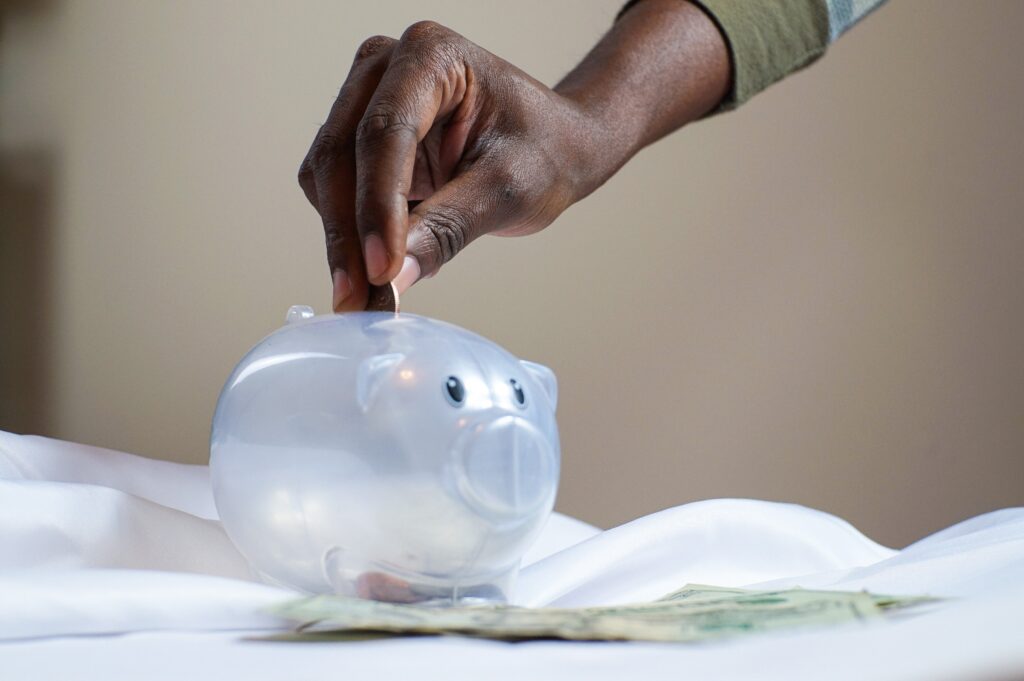While you’re sheltering in place, it might be a good time to consider saving for a down payment on your future dream home. Saving money for a down payment on a home is one of the biggest obstacles facing buyers, as setting aside money for an extended time requires discipline, and the willingness to make sacrifices and forego unnecessary spending.
How much should you save for the down payment? That depends. If you want to avoid the cost of private mortgage insurance (PMI), aim to save at least 20 percent of the purchase price of the home. If you plan to use an FHA loan or other program, the percentage can be 10 percent to as low as 2 percent.
How long should you plan to save for a down payment? This also depends on how much money you can comfortably set aside and how big the down payment will be. If you want to save enough money in just a year or two, plan on a low-down-payment loan or cutting a lot of expenses. Living with relatives, avoiding dining out deferring retirement contributions are just some of the ways to get that down payment faster. According to Bankrate, here are some more:
1. Pay off your credit cards first
When you carry credit card balances, the accumulating interest charges make it hard to erase that debt. By eliminating this debt, you pay less over time and significantly improve your credit score—a boon to getting a mortgage loan. Pay off the cards with the highest interest rates first, then pay off the card with the second-highest rate, and so on. You’ll have a lot more cash to build your savings by getting those credit card bills out of the way.
2. Ladder CDs to boost savings
Once you free up some cash, put it to work, and make yourself more money. Certificates of deposit are low-risk and relatively accessible. You can maximize the earning power of CDs by opening different certificates at varying maturity dates. Instead of buying one big CD, spread your money into three-month, six-month and one-year certificates. This is called laddering—a strategy that gives you the flexibility to adjust your investment as rates change.
Laddering allows you to lock in when rates are higher. When rates are not so good, laddering keeps you from being stuck for long with low returns. CD rates aren’t very high these days, but over time, they can protect your savings from inflation. Perhaps, more importantly, they keep you from spending the money because you can’t access it until the end of a CD’s term without a penalty.
3. Take advantage of special programs
There are numerous programs for homebuyers struggling to save for a down payment, especially first-time buyers. Fannie Mae and Freddie Mac, the government-sponsored agencies that buy mortgages and package them as investments, as well as various non-profit and community groups, can aid buyers who are struggling to save down payments. There also are state agencies that may help.
4, Tap your IRA
Tax laws allow you to withdraw up to $10,000 in IRA funds to buy your first home. If you’re married and you’re both first-time buyers, you each can pull from your retirement accounts, meaning a potential $20,000 down payment. Even better is the IRS definition of first-time homebuyer. Technically, you don’t have to be purchasing your very first home. You can qualify under the tax rules as long as neither you nor your spouse has owned a principal residence at any time during the three years before the purchase of the new home. In these instances, Uncle Sam waives the penalty for early withdrawal, but with regular IRAs, you will have to pay tax on the money (plus a penalty if you’re under 59). Withdrawals from Roth IRAs, however, are tax- and penalty-free.
5. Seek out someone generous
See if a favorite family member will be willing to give you the money toward the down payment. Tax law allows gifts up to a certain amount a year to be bestowed without tax consequences to either the giver or recipient. Known as the gift-exclusion, this tax-exempt amount is $15,000 for the 2019 and 2020 tax years. The gift exclusion isn’t limited to relatives; the cash gift can be from anyone.
6. Ask for a raise
No luck finding a benefactor? It may be time to ask your boss for more money. Just make sure you do your homework and base your request for a raise on your accomplishments and the company’s pay scale—not your housing needs.
7. Get a second job
If your boss turns you down for that raise, moonlighting could help you earn the extra money. This option makes the most sense for those who are young and not fully established in their professions.
8. Put your stimulus check to work
The $2 trillion economic stimulus plan includes a first round of checks of up to $1,200 direct payments for eligible individuals, $2,400 for qualified married couples, and also $500 per child to many Americans. These funds can go straight toward your down payment. The law also allows people affected by the virus to take money from the IRA penalty-free if they are under age 59.
9. Look for lost money
There are about $23.8 billion worth of matured savings bonds that remain unredeemed, according to the U.S. Department of the Treasury. These bonds have been ignored or forgotten by their owners and aren’t earning a penny of interest. Make sure your bonds and other investments are still adding to your net worth.
You also could have money languishing in an old bank account. You can file a claim with the U.S. Treasury Department to recover lost, stolen, or destroyed savings bonds. Or, check the National Association of Unclaimed Property Administrators to see if you have any unclaimed assets.

